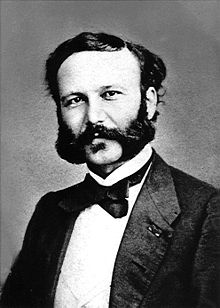Organizational founder

An organizational founder is a person who has undertaken some or all of the formational work needed to create a new
Issues arising from the role
A number of specific issues have been identified in connection with the role of the founder. The founder of an organization might be so closely identified with that organization, or so heavily involved in its operations, that the organization can struggle to exist without the founder's presence.[1] "One practical way to cope with overreliance on a founder is to distribute management duties so that others are clearly responsible for important operations. If the founder is on the nonprofit's board, part of the solution is to make sure that the board is diverse, balanced, and regularly infused with new blood".[1]
Legal status
The language of
Founder emeritus
Some organizations maintain a connection with their founder by establishing a position of founder emeritus, either as an entirely symbolic post, or as a position with some power, such as a permanent position on the board of directors. A drawback to such an arrangement is the possibility that the founder will clash with the person who has replaced them as leader of the organization, and that such a conflict will affect the performance of the founder emeritus as a board member.[5]
Founder's dilemma
In some instances, the desire of the founder to maintain control over the organization becomes a problem because, when an entrepreneurial organization is successful, "[i]t outgrows the ability of the founder, or even of a small team around the founder, to control".[6] The Harvard Business Review identified this problem as the founder's dilemma, noting that in most successful companies, the founder is pushed out of control by investors within the first few years after the formation of the company.[7] In some cases, a company may have multiple founders, and a prominent source of conflict can be disagreements between these founders as the company evolves.[8] There are factors beyond the personality and professional accolades of a startup founder that impact the ability of a company to succeed, like trouble in funding, sudden market shutdown, not having the right team or poor scaling plan.[9]
Forgotten founder
Another problem that can arise is that of the forgotten founder, a person who participates early on in the formation of an enterprise, but leaves or is ousted before it achieves success, and then returns to claim a legal right to
See also
References
- ^ ISBN 978-1413320886.
- ^ Securities and Exchange Commission (September 12, 2008), "Guide to Definitions of Terms Used in Form D", SEC.GOV, retrieved July 1, 2014
- ^ Lora Kolodny (April 30, 2013). "The Other Credit Crisis: Naming Co-Founders". Wall Street Journal. Retrieved July 1, 2014.
- ^ Katie Fehrenbacher (June 14, 2009). "Tesla Lawsuit: The Incredible Importance of Being a Founder". Giga Om. Retrieved July 1, 2014.
- ISBN 978-1949709339.
- ISBN 9781403904003.
- ^ Noam T. Wasserman, "The Founder's Dilemma", Harvard Business Review (February 2008).
- ISBN 9781119583288.
- ^ Kronenberger, Craig (2021-08-20). "The Top 10 Entrepreneurial Mistakes that Startup Studios Help Address". Startup Studio Insider. Retrieved 2022-02-27.
- ^ a b Constance E. Bagley, Managers and the Legal Environment: Strategies for the 21st Century (2012), p. 650.
